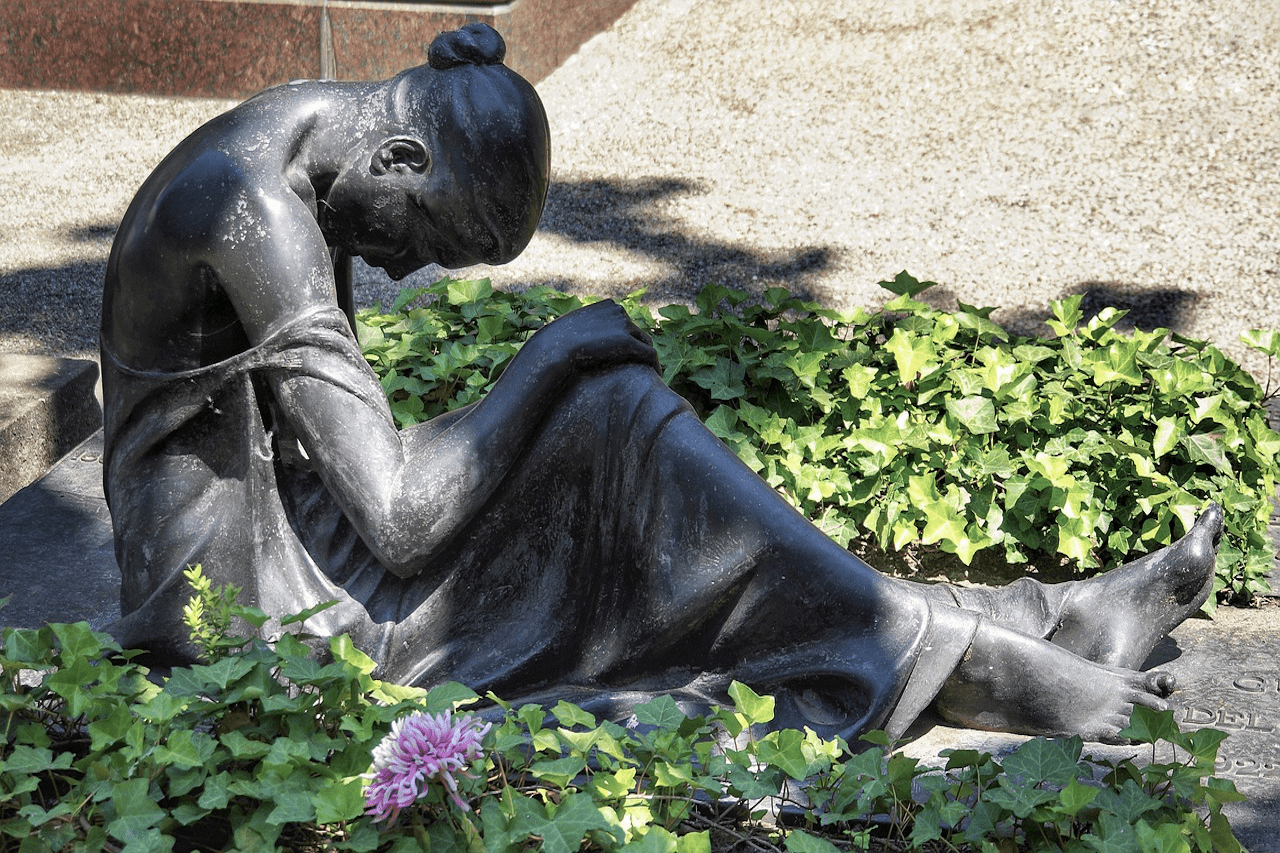Newsflash: There is such pain in the world!
It is not suffering in general that overwhelms me, but when it devolves into cruelty, brutality, and ruthless violence I feel cut adrift, powerless, angry and afraid. I find myself screaming at God,
“You know that free will you gave us? Well, take it back! It’s causing too much needless misery and anguish!”
I shake my fist at the night sky. I scream. I lament. I cry. Strangely, I feel heard.
I have been plumbing the depths of this struggle with suffering for many years. Who are you God in the face of human suffering, the animals that suffer, Earth itself? And who are we? Who am I? Like Job, I fear that I could become ‘embittered of soul and long for death’ in the face of these questions. God gave Job no satisfying answers, but rather an invitation to be drawn deeper into the mystery. At the end of the Book of Job I am consoled by his closing response:
I knew you then only by hearsay; but now, having seen you with my own eyes, I retract all I have said, and in dust and ashes I repent. (Job 42: 5-6)
Job repents (i.e. changes his mind) but only after receiving a healing vision (“now, having seen you with my own eyes…”). He is healed when he lets go of his image of an all-controlling God and “sees” God as “the friend, the vulnerable one who is there with him in his suffering and whose caring presence heals him,” as theologian Burton Cooper writes. ¹
When I see such horrendous suffering in the world I don’t easily acquiesce to the vulnerability of God! I find myself keeping company with Judas and Matthew, considered the zealots among Jesus’s inner circle, who expected him to ride in on a valiant steed and save Israel from the Roman oppressors! Yet it is exactly into this kind of suffering that God chooses to incarnate God’s very self. This is the hard work of Advent; to see the pain, lament, and still cry out, “Come Lord Jesus!” As liberation theologian Kelley Nikondeha writes:
When we grasp our humanity in all its vulnerability, seeing it unvarnished amid our suffering, the meaning of incarnation penetrates deeper within us. God enters our frail bodies, our hemorrhaging landscapes, and our troubled times. God is with us where trauma hits hardest.²
Yes, the hard work of Advent: to see that suffering most often issues from our exploitation of the gift of human freedom. Nevertheless we treasure the gift, as theologian Monica Helwig has said, even when it issues in atrocity and tragedy, because the greater tragedy would be not to be free. Somedays I am not so sure about the latter statement, but on other days the night sky, full of birthing and dying stars,³ gives me courage…and hope. It’s a vision; I am made to “see” differently; and words are whispered from deep within: Come, Lord Jesus.
¹Cooper, Burton Z. “Why God? A Tale of Two Sufferers.” Theology Today 42:423-434 January 1986.
²Nikondeha, Kelley. 2022. The First Advent in Palestine: Reversals, Resistance, and the Ongoing Complexity of Hope. Minneapolis: Broadleaf Books. p.21
³Dunne, Veronica. RNDM Blog. December 11, 2023 at https://rndmcanada.org/2023/12/11/neutron-star/
Sandra Stewart is a member of the Sisters of Our Lady of the Missions in Winnipeg. Originally from Windsor, ON she has spent most of her religious life in Manitoba but has also served in France, Senegal and Papua New Guinea. She holds a Masters degree in Pastoral Studies from Loyola University in Chicago, majoring in spiritual accompaniment from the Institute for Spiritual Leadership.
Presently she serves as a spiritual director, a facilitator of Centering Prayer workshops, and an advocate for social and environmental justice.
Sandra currently serves on her community’s province leadership team in Canada.





A very sincere and relevant commentary of Advent and of these times! Hard work indeed…but Come Lord Jesus.
I so appreciate this, Sandy, as you articulate the difficulty I seem to have every year as December begins, and I am bombarded with cheerful Christmas music that seems to deny the actual lived realities of so many in our world if only we have eyes to see- the very ones with whom the One we await ultimately aligned himself. And yet, as you say, ‘This is the hard work of Advent; to see the pain, lament, and still cry out, “Come Lord Jesus!”
And so, I gladly set my shoulder to the task!
Thank you!
God taking flesh, becoming “incarnate”, human in every way but sin, is as difficult to “understand” as the universe being 13.8 BILLION years old. Pondering these mysteries opens me to deep and grateful wonder. Thanks for opening both these mysteries another little bit.